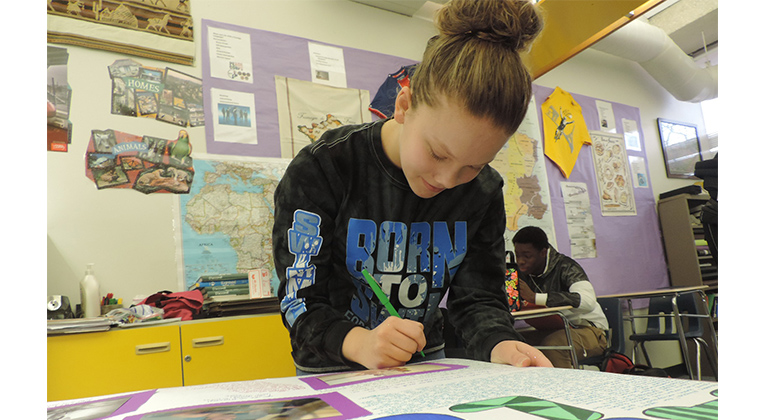Big Benefits: Extracurriculars Boost PNH Students to Success

According to a study done by the University of Nevada, Las Vegas, students involved in extracurriculars have a higher attendance rate and a higher grade point average than other students, while also gaining other skills and benefits in the process.
“If students want to attend highly selective colleges, they must have a résumé of quality extracurriculars that they are very passionate about,” said college counselor Christy Wills.
Most colleges look for well-rounded applicants, as extracurriculars are “vehicles to get to college,” said Wills. These extracurriculars also affect the everyday life of students. Sometimes, this can be very positive; other times, it can be negative.
“Occasionally, I feel rushed to do my homework, or I don’t get enough sleep,” said freshman Loralie Borgmann, who is on the swim team. However, Borgmann said that she is glad she joined the swim team because of the social aspect of making new friends and just being involved in the community.
Senior Brian Wasserman, who is involved in the Technology Student Association, Gay Straight Alliance, International Thespian Society, and Improv team, spends approximately 20.5 hours on his extracurriculars, in contrast to two hours on homework.
“I focus on theatre, then I work on homework, but I only do what I need to pass my classes,” said Wasserman.
Sometimes, extracurriculars help students focus on their assignments and manage their time.
“I feel more motivated to get my work done because I have less time to work,” said Borgmann.
Skills can be transferred from sports and clubs to academics. Wasserman said that he gains many skills from his clubs including public speaking, quick thinking, analyzing, time managing, planning, and other beneficial skills useful in core classes.
“Clubs help students tremendously with group work because they do enriching activities with peers that have a similar purpose,” said Wills.
Wills and Borgmann both agreed that extracurriculars help teens develop dedication in order to problem solve and try their best. Though, sometimes a balance needs to be made between school and after school activities.
“I have to set time to finish my homework. I’m a supervisor of myself,” said Wasserman.
Sometimes this balancing act is difficult to manage because of the time allotted for sports and clubs, but the advantages of higher grade point averages, attendance rates, and other acquired skills outweigh conflict for most.
by Madeline Fischer, staff writer
